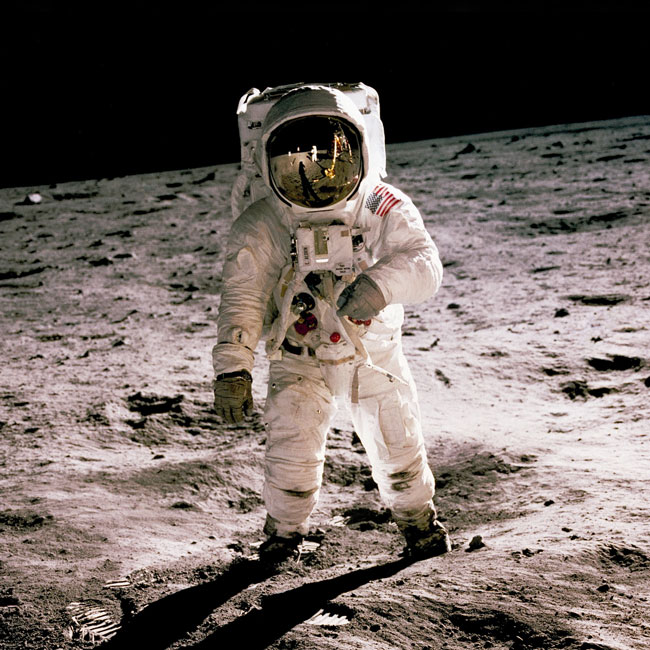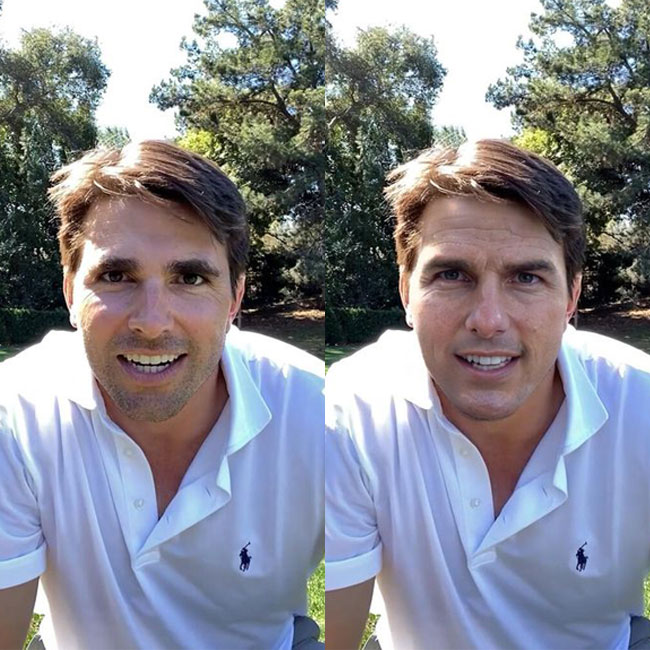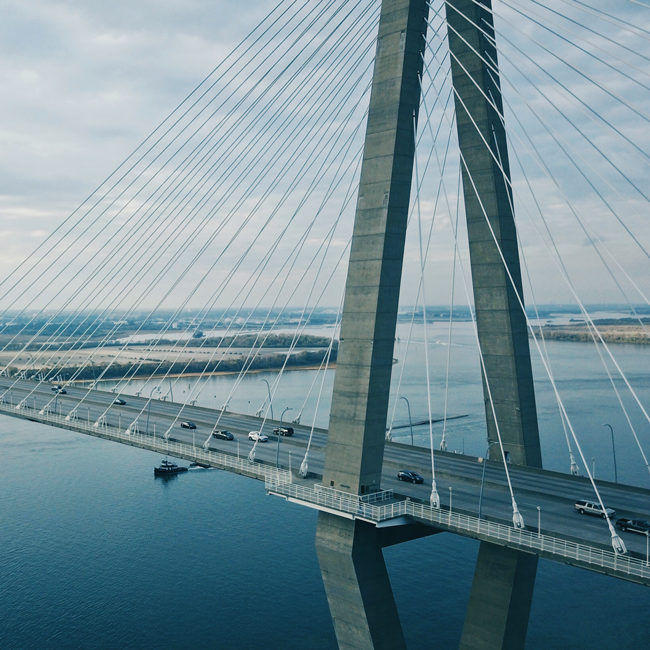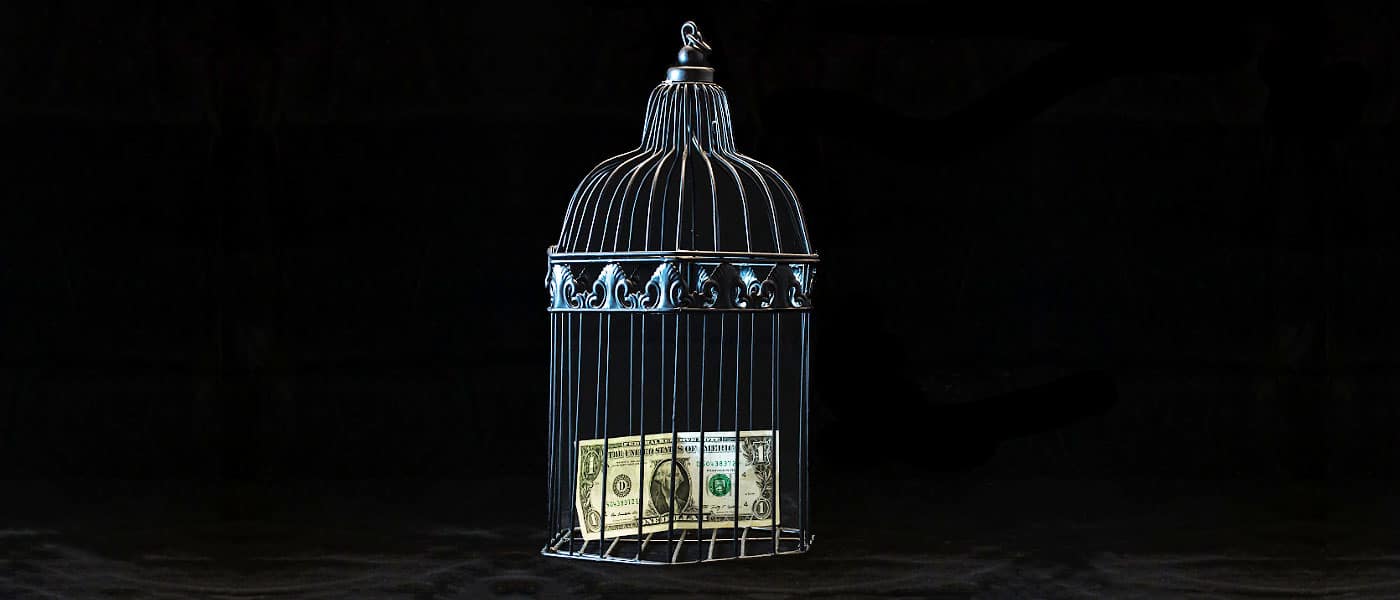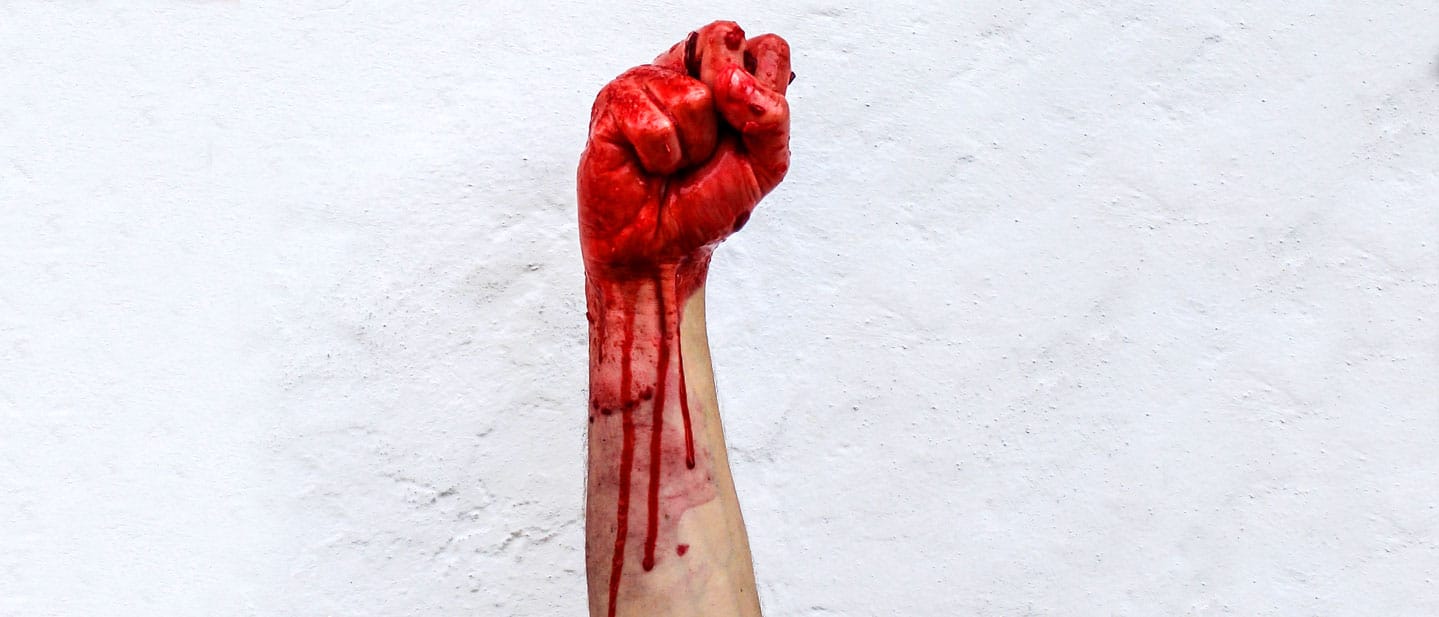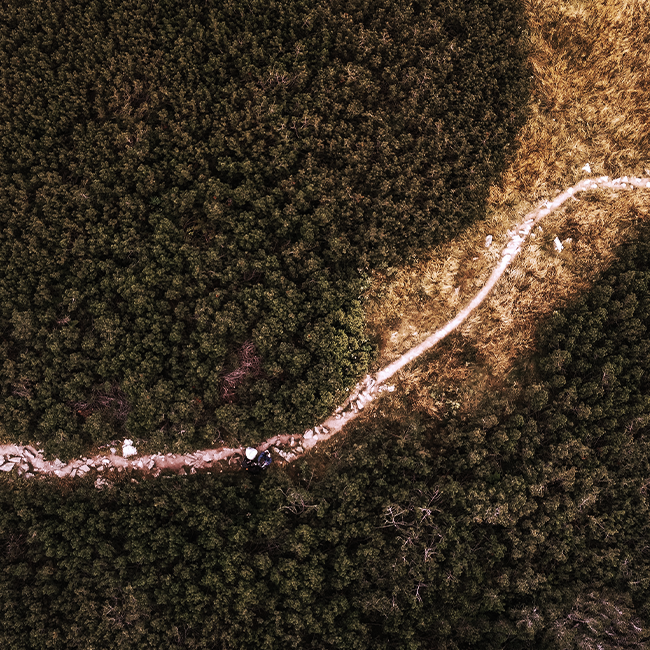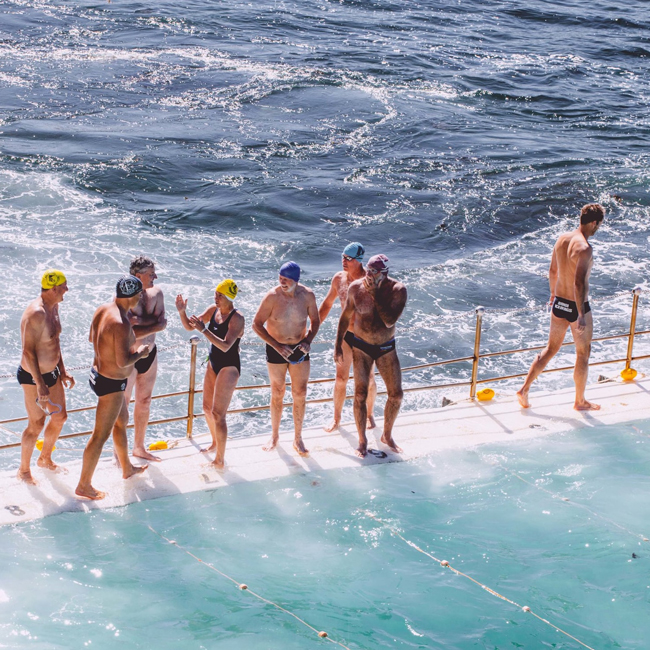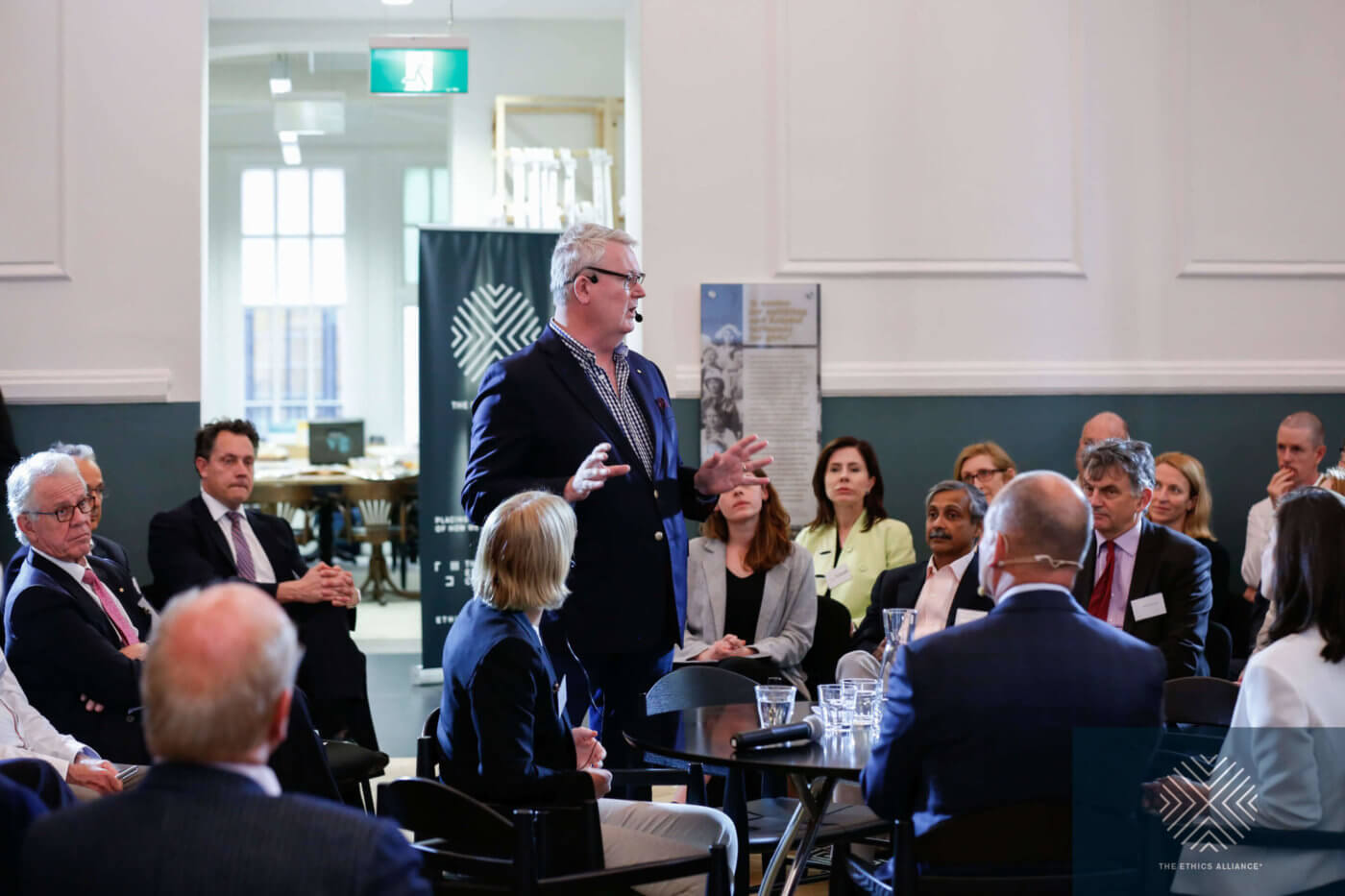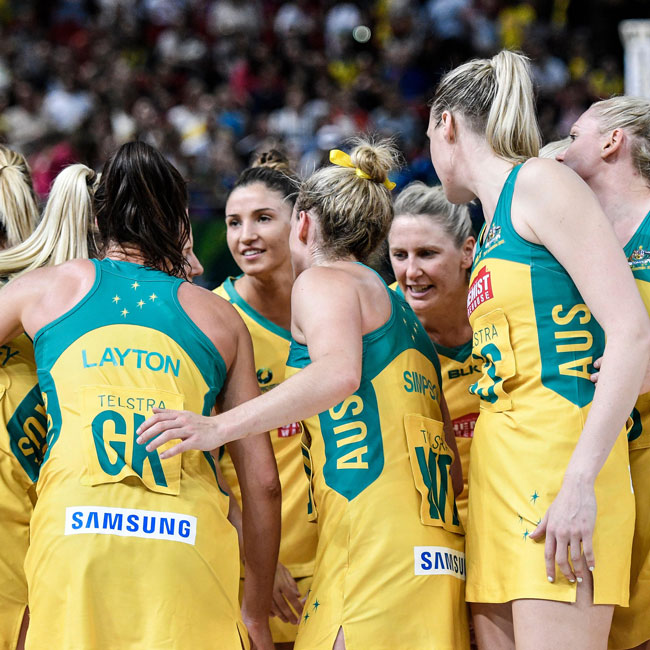One giant leap for man, one step back for everyone else: Why space exploration must be inclusive

One giant leap for man, one step back for everyone else: Why space exploration must be inclusive
Opinion + AnalysisBusiness + LeadershipScience + Technology
BY Dr Elise Stephenson Isabella Vacaflores 14 SEP 2023
Greater representation of women and minoritised groups in the space sector would not only be ethical but could also have great benefits for all of humanity.
The systematic exclusion of women – and other minoritised groups – from all parts of the space sector gravely impacts on our future ability to ‘make good’ our space ambitions and live out the principle of equality. Minoritised groups refer to groups that might not be a minority in the global population (women, for instance) but are minoritised in a particular context, like the space sector.
Currently, more than half of humanity is treated as an afterthought for space tech billionaires and some government space agencies, amplifying dangerous warning signs already heralded by space ethicists and philosophers, including us. If these warning signs are ignored, we are set to repeat earthly inequalities in space.
Addressing the kind of society we want in space is crucial to fair and good decision making that benefits all, helping to mitigate risk and protecting future generations.
What does diversity in the space sector look like right now?
Research reveals that women have held 1 in 5 space sector positions over the past three decades. Across much of the sector, representation is at best marginally improving in public sector roles, whilst at worst, stagnating or regressing over a period where we should have seen the greatest improvements.
For example, of the 634 people that have gone to space, just over 10% have been women.
Our research has found that from the publicly available data, only 3 out of 70 national space agencies have achieved gender parity in leadership. Both horizontal and vertical segregation limits women – even in agencies that are doing well – pushing them down the organisational hierarchy and pigeonholing them out of leadership and operational, engineering and technical roles, which are often better paid and have higher status.
It is not just the most visible part of the space sector that is struggling to address the issue of gender inequality. Exclusion and discrimination have been reported by women occupying roles from astrophysicists and aerospace engineers to space lawyers and academics.
Prejudice is a moral blight for many workplaces, not least because it holds industry back from realising its fullest potential. Research finds that more diverse teams typically do this better and are more innovative – having a diverse mix of perspectives, experience, and knowledge ultimately helps conquer groupthink and allows a broader range of opportunities and complications to be considered. In the intelligence sector, diversity further helps “limiting un-predictability by foreseeing or forecasting multiple, different futures” which may be similarly relevant for the space sector.
Space exploration is a gamble, but getting more women and people from diverse backgrounds into the space sector will improve humanity’s odds.
In the context of space, failing to act on such insights would be morally irresponsible, given the risk taken by the sector on humanity’s behalf every single day.
Space is defined by the Outer Space Treaty as a global commons, meaning it is a resource that is unowned by any one nation or person – yet critically, able to be ‘used’ by any, so long as they have the resources to do so. As it stands, the cost and inaccessibility of space technology means that only a privileged few individuals, companies, and countries are currently represented in the space domain. In broader society, these privileged few are predominantly white, wealthy, connected men.
Being ‘good ancestors’ in the new space age
We might consider the principle of intergenerational justice espoused by governments or the ‘cathedral thinking’ metaphor by Greta Thunberg to describe the trade-off between small sacrifices now for huge benefits moving forward.
To further her metaphor, our ethical legacy is not shaped solely by our past, but also by our ability to be regarded as ‘good ancestors’ for future generations. These arguments are already being spurred in Australia by movements like EveryGen, Orygyn, the Foundation for Young Australians and Think Forward (among others) who are aiming for more intergenerational policymaking across many domains.
As the philosopher Hannah Pitkin notes, our moral failings arise not from malevolent intent, but from refusing to thinking critically about what we are doing.
A new space ethics
Whilst it will take some time to see gender parity occur in the space industry even if quotas or similar approaches are taken, there are still ‘easy wins’ to be had that would help elevate women’s and minoritised voices.
We found many women in the space industry who were interested in forming networks both within and between agencies and organisations. These typically serve a wide range of functions, from networking in the strict sense of the word to enabling a safe space to discuss diversity and inclusion or drive advocacy efforts. Research shows diversity networks having benefits for career development, psychological safety and community building.
Beyond this individualised, sometimes siloed approach, organisations also need to deeply commit to tackling inequality at a systematic level and invest in diversity, inclusion, belonging and equity policies which many in the space sector currently lack. Without transparently defined goals and targets in this area, it is difficult for organisations to measure their progress and, moreover, for us to hold them accountable.
Finally, looking to the next generation, the industry needs to engage a diverse range of students from different educational and demographic backgrounds. This means offering internships and educational opportunities to students that might not adhere to the current ‘mould’ of what someone looking in space looks like. For instance, the National Indigenous Space Academy offers First Nations STEM students a chance to experience life at NASA, whilst other initiatives across the sector include detangling the STEM-space link, to demonstrate the range of roles and opportunities available in the space sector for even non-STEM career paths.
In the height of the Soviet-American space race, JFK said: “we choose to go to the Moon in this decade and do other things, not because they are easy, but because they are hard”. Transforming the exclusive structures and patriarchal history of the space sector may not always be a simple task, but it is fundamentally critical on both a practical and moral level.
Ethics in your inbox.
Get the latest inspiration, intelligence, events & more.
By signing up you agree to our privacy policy
You might be interested in…
Opinion + Analysis
Business + Leadership
Taking the bias out of recruitment
Opinion + Analysis
Business + Leadership
The invisible middle: why middle managers aren’t represented
Opinion + Analysis
Business + Leadership
Is it fair to expect Australian banks to reimburse us if we’ve been scammed?
Opinion + Analysis
Relationships, Science + Technology
To see no longer means to believe: The harms and benefits of deepfake
BY Dr Elise Stephenson
Dr Elise Stephenson is the Deputy Director of the Global Institute for Women's Leadership at the Australian National University. Elise is a multi award-winning researcher and entrepreneur focused on gender, sexuality and leadership in frontier international relations, from researching space policy, to AI, climate, diplomacy, national security and intelligence, security vetting, international representation, and the Asia Pacific. She is a Gender, Space and National Security Fellow of the National Security College, an adjunct in the Griffith Asia Institute and a Fulbright Fellow of the Henry M Jackson School of International Studies at the University of Washington.
BY Isabella Vacaflores
Isabella is currently working as a research assistant at the Global Institute for Women’s Leadership. She has previously held research positions at Grattan Institute, Department of Prime Minister & Cabinet and the School of Politics and International Relations at the Australian National University. She has won multiple awards and scholarships, including recently being named the 2023 Australia New Zealand Boston Consulting Group Women’s Scholar, for her efforts to improve gender, racial and socio-economic equality in politics and education.
Self-interest versus public good: The untold damage the PwC scandal has done to the professions

Self-interest versus public good: The untold damage the PwC scandal has done to the professions
Opinion + AnalysisBusiness + Leadership
BY Simon Longstaff 7 JUN 2023
The unfolding PwC scandal could be considered nothing more than an especially egregious example of ethical failure with dire consequences.
However, there are deeper issues to be examined. The most obvious concerns the proper role of the Australian Public Service, and whether or not efforts by successive governments to hollow it out have caused damage that will take a generation to repair. Less obvious is the damage done to an essential component of Australia’s ethical infrastructure: the professions.
Australian governments have long been captivated by physical and technical infrastructure. Few politicians can resist the opportunity to don a hard hat and hi-vis vest when announcing new investment in road, rail, bridge and dam projects. There is equal pride in initiatives including the National Broadband Network, quantum computing and improved cybersecurity.
Unfortunately, there is little interest in the ethical “infrastructure” that determines the extent of public trust in major public- and private-sector institutions. Without that trust, reform becomes almost impossible – or only after untimely delays and great cost.
As with physical and technical infrastructure, the quality of a nation’s ethical infrastructure has tangible effects on a nation’s economy. For example, Deloitte Access Economics has estimated that just a 10% improvement in ethics, across Australia, would generate an extra A$45 billion in GDP each year.
What is ethical infrastructure?
There are many components to this ethical infrastructure. However, one of the most important is the professions – whose members influence nearly every aspect of our lives. To understand their distinctive role, one needs to recognise the difference between two “worlds”: those of the market on one hand, and the professions on the other.
The essential character of the market was defined by Scottish economist and philosopher Adam Smith. It is a place where self-interested actors satisfy the wants of others. Smith prohibits lying, cheating or the oppressive use of power – as all harm the free market. Self-interested conduct is mediated by the so-called invisible hand, which Smith argues leads to an increase in the stock of common good. Indeed, that is the test any market must pass: does it, in practice, make us all better off?
The second world – the professions – is, in two respects, the opposite of the market. First, members of the professions do not satisfy the wants of others; they are obliged to serve the interests of others. For example, a diabetic might want to consume a large block of chocolate. The market will happily satisfy this want as long as the customer can pay the tariff. However, a doctor will refuse to provide the chocolate because it is not in the interests of their patient to do so.
Second, professionals are obliged to put aside self-interest in favour of the public good. For example, as officers of the court, lawyers are obliged to help in the administration of justice. This takes precedence over duties to the client and to the profession. Only after all other interests have been served may a lawyer look to their self-interest. The same holds for the members of every true profession.
In recognition of this practice, society enters into a social compact with the professions. It accords status, and gives them access to certain work that others may not do. It establishes privileges (such as the shield laws that protect journalists’ sources). The quality of the social compact waxes and wanes over time – but can exist only for as long as the professions honour their commitment to reject the logic of the market.
The importance of independence
It is the ethical foundations of the professions – in particular the putting aside of self-interest – that makes it possible for Australian governments to outsource public-sector functions to large, professional consulting firms such as PwC. After all, governments have an inalienable duty to act solely in the public interest. It is inconceivable they would turn over any of their functions to a self-interested entity. That would be to invite the fox into the hen house.
Central to each of the “Big Four” consulting firms is their auditing practice. Compared with consulting, auditing is a minnow in terms of revenue and influence. However, there lies the core of accounting’s professional ethos with its commitment to what is true and fair.
Auditors should be the quintessential professionals – independent and divorced from the ethos of the market. So, when an auditing firm, like PwC, works for government, it is assumed they can be trusted. Until they cannot.
What impact will PwC’s behaviour have on other professions?
We do not know the full extent of what happened at PwC. However, it seems likely that, at some point, some part of the firm abandoned the world of the professions in favour of the market – placing self-interest before all other considerations.
Now we are left to wonder. Was this just a small part of PwC, or has the rot infected larger parts of the company? If the professional ethos of PwC has been corrupted, how is this risk being managed in other, similar organisations?
Most troubling of all, can society still rely on the social compact it has struck with the professions more generally? Or has this once-vital piece of ethical infrastructure fallen into disrepair?
Whether you care about the quality of our society, or the economy, or the possibility of progress, you should care about the quality of our nation’s ethical infrastructure. It’s time to reinforce what remains so it’s not all lost, through neglect, cynicism or indifference, and to our considerable cost.
This article was originally published in The Conversation.
Ethics in your inbox.
Get the latest inspiration, intelligence, events & more.
By signing up you agree to our privacy policy
You might be interested in…
Opinion + Analysis
Business + Leadership, Relationships
Can you incentivise ethical behaviour?
Opinion + Analysis
Business + Leadership
Ready or not – the future is coming
Opinion + Analysis
Business + Leadership, Relationships, Science + Technology
Are we ready for the world to come?
Opinion + Analysis
Business + Leadership
Are diversity and inclusion the bedrock of a sound culture?
BY Simon Longstaff
After studying law in Sydney and teaching in Tasmania, Simon pursued postgraduate studies in philosophy as a Member of Magdalene College, Cambridge. In 1991, Simon commenced his work as the first Executive Director of The Ethics Centre. In 2013, he was made an officer of the Order of Australia (AO) for “distinguished service to the community through the promotion of ethical standards in governance and business, to improving corporate responsibility, and to philosophy.”
The future does not just happen. It is made. And we are its authors.

The future does not just happen. It is made. And we are its authors.
Opinion + AnalysisBusiness + LeadershipRelationships
BY Simon Longstaff 5 JUN 2023
Of late, I have been thinking about how to describe the impact of the work done by The Ethics Centre. It’s a surprisingly difficult thing to do because our greatest impact typically lies in our influence on what does NOT happen.
For example, when we assist or inspire a person to step back from making a disastrous decision, there is nothing to measure. We can measure the cost of disasters. We can measure the impact of the response to disasters. However, how do we measure the impact of a disaster averted?
Let’s consider this in a wider context. My abiding sense of today’s world is that we remain on the cusp of epoch-defining change. The sense of what is before us has led me back to binge-reading vast swathes of science fiction – and the worlds I encounter there are recognisably connected to our own. Yet, the unbounded power of the authors’ imagination invites the reader to be equally bold in contemplating ‘what might be’. Wondering about ‘what might be’ leads us to the realisation that we are each responsible, at least in part, for the future that actually emerges.
The future does not just happen. It is made. And we are its authors.
And that is why ethics matters. It is humanity’s best tool for the avoidance of disastrously bad decisions – and the nightmare worlds that emerge from them. More optimistically, ethics equips us to make brilliantly good decisions – and the wonderous possibilities that they entail.
We can see this at work in one topical example; the rise and rise of CHATGPT – the most famous of a growing suite of expert systems that already have the capacity to transform our lives. Predictably, there has been a slew of prophecies about the likelihood of both utopian and dystopian futures. The emergence of new technology is always accompanied by excessively optimistic and pessimistic views about its likely effects.
Less predictably, some of the architects of this technology have urged caution. Their call for a measure of self-restraint is not grounded in fear. They simply argue that it is irresponsible to unleash a powerful, transformative force without understanding what we do. In essence, we need to set the ethical parameters within which AI should be developed and deployed. If we get this right, then sound ethics will inform policy and practice that averts all manner of mischief. Yet, the impact of ethical restraint will go unmeasured. Despite this, The Ethics Centre remains actively engaged in work to support the development of ‘responsible AI’ – as evidenced by our joining the Responsible AI Network (RAIN) being led by the CSIRO.
The Centre’s work is aligned to three strategic priorities. First, we seek to exemplify and support good decision making. Second, we work to maintain an open civic space within which the issues facing our society can be discussed – even when there is much room for disagreement. Finally, we seek to strengthen the ‘ethical infrastructure’ of our society – so that they become trustworthy to the extent that the community will rely on its key institutions to exercise good judgement in the public interest. This is especially important to any society that faces major change. For example, the transition from fossil fuels to renewable energy raises the spectre that some communities (typically linked to older forms of power generation) will bear a disproportionate share of the burdens, while others reap the benefits. If we cannot trust our governments, businesses, regulators, or other institutions to get the balance right, then reform will be slowed or halted – to the detriment of all.
The economic cost of broken ‘ethical infrastructure’ is immense. As Deloitte Access Economics has estimated, a mere ten percent increase in ethics would, by itself, generate an additional $45 Billion dollars per annum in improved GDP. Even more remarkable is that this economic return could be generated, over time, with a one-off investment of only $30 Million in funds. It’s hard to think of a better return on investment. Yet, it remains elusive.
What Australia needs is a truly national institution to help the nation lean into the challenges we face. It needs to become a trusted source of advice for governments and other key decision makers. It needs to build the capacity of our nation’s leaders, in the public and private sectors, to make good decisions – across the board. It needs to support our institutions in their efforts to regain public trust. Only then, will the community allow itself to accept the fundamental reforms that will be necessary to make the most of the future.
The establishment of such an institution will be especially important in its implications for the generations of younger Australians who so readily embrace ethics – in a way that surpasses earlier generations who looked to organised religion for guidance. That is why the Centre is investing in a new youth strategy to engage, at an early stage, with the ethical leaders of the future.
The immediate effects of a significant investment in ethics will be impossible to see. The increase in prosperity will inevitably be attributed to the wisdom of those in power. What will remain invisible are the many acts of folly that sound ethics will have prevented.
That is our conundrum. It is also why we are so deeply grateful for the support provided to us by the individuals, foundations and organisations who support our work. The Ethics Centre begins every financial year without a cent of income ‘locked in’. Nobody ‘needs’ ethics … until they do. So, we remain vulnerable. But, perhaps, that might be one of our greatest strengths – because it keeps the Centre attuned to the fundamental needs of society. Irrelevance is not an option.
So, next time things go better than expected, spare a thought for the possibility that it was the invisible hand of ethics (and not the market) that produced the result. With luck – and the generous support of our donors – we can strengthen that hand for a better future.
With your support, The Ethics Centre can continue to be the leading, independent advocate for bringing ethics to the centre of everyday life in Australia. Click here to make a tax deductible donation today.
Ethics in your inbox.
Get the latest inspiration, intelligence, events & more.
By signing up you agree to our privacy policy
You might be interested in…
Big thinker
Health + Wellbeing, Politics + Human Rights, Relationships
Big Thinker: Judith Butler
Opinion + Analysis
Health + Wellbeing, Relationships, Science + Technology
How to put a price on a life – explaining Quality-Adjusted Life Years (QALY)
Opinion + Analysis
Relationships, Science + Technology
To see no longer means to believe: The harms and benefits of deepfake
Opinion + Analysis
Business + Leadership, Society + Culture
Banking royal commission: The world of loopholes has ended
BY Simon Longstaff
After studying law in Sydney and teaching in Tasmania, Simon pursued postgraduate studies in philosophy as a Member of Magdalene College, Cambridge. In 1991, Simon commenced his work as the first Executive Director of The Ethics Centre. In 2013, he was made an officer of the Order of Australia (AO) for “distinguished service to the community through the promotion of ethical standards in governance and business, to improving corporate responsibility, and to philosophy.”
Who’s afraid of the strongman?

Who’s afraid of the strongman?
Opinion + AnalysisBusiness + LeadershipPolitics + Human Rights
BY Georgia Fagan 23 NOV 2022
Donald Trump has announced his second run for presidency in 2024. With a reputation for both passive and active violence, and a disregard for democratic integrity, the prospect of another Trump presidency is feared by many. But for others, his re-election would mark the promising return of a strong, capable leader. How do we begin to make sense of these contemporary communities which seem to either fear or revere their elected leaders? And are there ways such polarised receptions can ever be avoided?
Historian Ruth Ben-Ghiat knows just how Trump, operates. He’s following the strongman’s playbook, one that has four guiding features. Strongmen put their personalities at the front of their politics, they embrace machismo norms, relish in corruption, and do not shy away from the power of violence. We can use these insights to sniff out the strongmen lurking in systems of governance. Ben-Ghiat emphasises that we should be strongly motivated to do just this, as there is ‘too much at risk not to try’.
Cultish personalities are formed around these political leaders as they work to present themselves as ‘a man of the people’. They emphasise their standout character while simultaneously asserting themselves to be no different than the common citizen.
Their embracing of machismo, Ben-Ghiat explains, is reflected in hypermasculine behaviours, showcasing these examples with shirtless photos of both Trump and Putin. Women, they say, are ‘the enemy of the strongman’.
Corruption in the case of the strongman is of both the ‘moral and professional’ variety. We are told that the strongman commonly grants pardons which ‘free up criminals for service’, channelling those who some may take to be immoral offenders into positions of political power.
To convey their relationship to violence, Ben-Ghiat directs us to the presence of weapons in recent Republican political campaigns in the United States, telling us that these men ‘think they look strong, but it is really a sign of insecurity’. The strongman is making up for something.
Ben-Ghiat tell us that a contemporary commonality of these men is that they are often democratically elected, and that they pose considerable threats to the democratic systems in which they embed themselves.
Trump’s rallying tactics and his subsequent role in and commentary on the 2021 Capitol riot may be taken as emblematic of these strongman features. His mass appeal has been argued as being largely derived from ‘performative’ techniques that obfuscate his political goals or capacities more broadly. Trump continues to claim the democratic integrity of the United States to be under threat, asserting the actions of the Capitol rioters as warranted given the presence of electoral fraud in the country.
In these ways and others Trump seems to aptly align with Ben-Ghiat’s constructed, strongman persona. Impeachment, ongoing congressional hearings and public scrutiny evidently do little to undermine Trump’s confidence and his desire to reobtain the political power he once held.
There are mounting concerns that this phenomenon is not isolated to the United States. And that politicians globally can be seen as working to strengthen centralised systems of political power in ways which align with authoritarian leadership regimes. Could there be a risk that even the most historically democratic governments could begin to shift in comparable ways? If so, what could be done to manage that risk?
–
Pursuing political instigators of harm is a coherent goal and a strong incentive to Ben-Ghiat’s work. State leaders, even when democratically elected, are fashioned with powers that endow them the capacity to do both a world of good, and a world of harm. Many people were directly harmed by policies of the Trump administration; even more were harmed from the uncertainty his particular presence in office brought into their daily lives.
Ben-Ghiat recognises these sorts of harms and aims to call out the various features which they take as both forging and propagating them, egotistical, corruptive, and violent figureheads. When bundled together, these form the strongman, and for Ben-Ghiat the strongman should be our target.
If the goals of this work are the management of uncertainty and the desire to retain confidence in our capacity to uphold democratic structures and installed systems of justice, and we are sympathetic to these goals, we need ask what Ben-Ghiat’s approach to achieving them misses, or more poignantly, what it risks.
Bertrand Russel, not unlike Ben-Ghiat, was similarly sceptical of politicians. He remarks, “since politicians are divided into rival groups, they aim at similarly dividing the nation…”. Importantly distinct from Ben-Ghiat however, Russel’s scepticism is namely directed at the two-party political system as it stood in early 20th century Britain, and the impact this system has on the wider populations who comprise it.
Features of Ben-Ghiat’s strongman criteria are not in opposition to Russel’s characterisation of political figures more broadly. Yet Russel’s evaluations of these harm attend more heavily to the relationships that citizens, or voters, have to these politicians.
“The power of the politician, in a democracy” Russel writes, “depends upon his adopting the opinions which seem right to the average man”. For Russel, both the best and the worst of our politicians are reflections of and responsive to the ideas and sentiments of the populations they operate within.
The risk of Ben-Ghiat’s approach is that attending so heavily to the strongman, determining what he is and is not, may unhelpfully be turning our gaze away from our communities who, as Ben-Ghiat remarks, oftentimes democratically elect the very figureheads they and others wish to repudiate.
Sources of harm do not always come to us wrapped up in neat and tidy (shirtless) packages. Tirelessly seeking to group together ‘bad men’ can diminish our capacity to see other less precise but perhaps more pervasive sources of harm.
Comprehensively managing any risk a strongman may pose to our society will only be minimally addressed by stringing together various features that are said to necessarily render that man strong.
There is certainly time and space for the sort of work Ben-Ghiat dedicates themselves to.
Though if we are committed to protecting systems of democracy, and to ensuring that basic rights are genuinely upheld, we may be best served by turning our attention away from contemporary figureheads and towards those who cast their votes in favour of them, and to those systems of governance that forge and foster polarisation.
Naming and shaming the strongman, however accurately, will do little in the face of many who take his central features to be admirable strengths. Let us ensure that our pursuits of certainty and stability do not come at the cost of neglecting to engage with those around us who evidently have different assessments about just how risky a strongman really is.
Tune into Ruth Ben-Ghiat’s full FODI 2022 discussion, Return of the Strongman
Ethics in your inbox.
Get the latest inspiration, intelligence, events & more.
By signing up you agree to our privacy policy
You might be interested in…
Opinion + Analysis
Politics + Human Rights, Relationships, Society + Culture
Of what does the machine dream? The Wire and collectivism
Explainer
Politics + Human Rights
Ethics Explainer: Anarchy
Opinion + Analysis
Business + Leadership
Pavan Sukhdev on markets of the future
Opinion + Analysis
Business + Leadership, Climate + Environment, Society + Culture
Overcoming corruption in Papua New Guinea
BY Georgia Fagan
Georgia has an academic and professional background in applied ethics, feminism and humanitarian aid. They are currently completing a Masters of Philosophy at the University of Sydney on the topic of gender equality and pragmatic feminist ethics. Georgia also holds a degree in Psychology and undertakes research on cross-cultural feminist initiatives in Bangladeshi refugee camps.
Sir Geoff Mulgan on what makes a good leader

Sir Geoff Mulgan on what makes a good leader
Opinion + AnalysisBusiness + Leadership
BY The Ethics Centre 16 NOV 2022
Sir Geoff Mulgan has had a world of careers. Currently Professor of Collective Intelligence, Public Policy and Social Innovation at University College London, Mulgan discusses trust, power and what makes a good leader.
“There’s a risk in any relationship of power that it can amplify your vices as well as your virtues – vices of vindictiveness or meanness, of spirit or dishonesty. And I’m sure there’s some of that in me, probably because of my character faced by pressures and threats I’d be more likely just to run away and resign, rather than to become a sort of evil Adolf Hitler in the bunker type but you certainly see this in many other people.”
Geoff Mulgan has spent his entire career musing over the question: what makes a good leader? And not only that, but how you cultivate those skills and that mindset without becoming …a psychopath. This thinking prompted Geoff to write a book on this subject, in which he critiques the strong traditions within Christianity and Chinese philosophy. He explores the idea that what constitutes a good leader essentially depends on the ethics of the individual – that, if only you could find the right person for the right job everything would go swimmingly… through his vast research and experience, Geoff says this is completely wrong.
“We are creatures of our context. We are far more likely to be good leaders if there are constraints and pressures, if what we do is visible, if there are balancing forces and many people. Even apparently quite good people, if they can get away with things, will get away with those and they may start quite good. But five, ten, let alone 15 years later, if they’re still in power, they become evil monsters and again and again we see that at the global level.”
Are leaders scared of wisdom?
It’s in a leader’s interest to elicit a sense of awe and respect in their followers. They should be in possession of higher knowledge that can justify to those who work for them that they are worthy of that position. According to Geoff, that is why no leader can ever be completely transparent as they need to maintain this sense of mystery about their workings.
“As a leader I think you have to maintain an opacity, a sort of mystery about your knowledge and wisdom. You see it very clearly in how people talk about Putin or Modi or Xi. They wanted to project onto them this sort of genius, brilliant tactical, strategic genius, which we couldn’t understand. It’s sort of beyond comprehension, but we just sit back and admire it.“
And Geoff sees this behaviour amongst business leaders all the time – “the hagiographic magazine articles and books trying to cultivate an aura, a mysterious magical genius around their insights… which then suddenly collapses when the share price drops.”
Declining trust in institutions
When Geoff was working within the British government he said one of the biggest concerns internally was wavering trust in public institutions. As a result, he lead a large scale project under former UK Prime Minister Tony Blair asking the question: what could be learnt from how public institutions had lost and regained trust? He found the learnings for rebuilding trust were simple:
- Publicly acknowledge and apologise when something has gone wrong
- Articulate your moral purpose
- Perform your core function competently
The key positive that Geoff took away from this research was that: the problem of trust and trustworthiness is actually a fixable problem if you acknowledge it clearly and if you have the courage to really deal with it on these three key dimensions.
Is it possible to lead without getting your hands dirty?
“One of the weird things about leadership is you need a dual mind all the time of apparently opposite qualities – arrogance and humility, toughness and sensitivity, which need constantly replenishing and keeping in a balance… And if you drift too far in either direction, you won’t function very well.”
Geoff set up a young leadership training program in the UK, called “Uprising” and he explains the two dualities that he endeavoured to instil in the course which are:
- You have to be tough and have a thick skin. You’ll need to do things that are unpopular and unpleasant like firing people and closing things down and you need to be psychologically prepared to do that.
- On the flip side you also need to maintain your sensitivity, and not allow the aforementioned thick skin to destroy your ability to be kind and virtuous.
The second duality is: arrogance and humility
- Anyone becoming a leader needs to have a sense of arrogance, they need to believe that they are genuinely better than a million other people who could fill the role. Arrogance isn’t a bad thing, it’s a necessary thing to overcome setbacks, the personal attacks, the social media trolling and everything else that comes with being a public figure.
- But you also need to be humble. The humility to constantly learn and be open to new ideas.
In his experience, it is the young leaders who can manage to keep both of these sets of dualities in harmony who are the most successful.
The leaders of the future
We have a difficult few decades ahead of us, one that will be characterised by the accelerating climate crisis, widening inequality, austerity, and increasing inflation. Geoff believes that we will need to elevate the best people into positions of power if we are to emerge from the other side of this tumultuous time unscathed. His biggest fear is that, over the next few years the sorts of individuals who would make excellent leaders will shy away from the job because it’s too risky or too damaging to their private life, or just too difficult, and so we must persuade and elevate these individuals who possess that duality of arrogance and humility to put themselves forward and act.
“At the very heart of leadership is some sense of obligation and service to the whole community you are part of, realising almost everything you have has been given to you by others… Very little is created by yourself. And that gift requires a gift back.”
AUDIO: Listen to the full podcast discussion above
Sir Geoff Mulgan is Professor of Collective Intelligence, Public Policy & Social Innovation at University College London (UCL). He was CEO of Nesta, the UK’s innovation foundation from 2011-2019. From 1997-2004 Geoff had roles in UK government including director of the Government’s Strategy Unit and head of policy in the Prime Minister’s office. Geoff advises many governments, businesses, NGOs and foundations around the world. He has been a reporter on BBC TV and radio and was the founder/cofounder of many organisations, including Demos, Uprising, the Social Innovation Exchange and Action for Happiness. He has a PhD in telecommunications and has been visiting professor at LSE and Melbourne University, and senior visiting scholar at Harvard University.
Find out more about other conversations in the Leading with Purpose podcast. Delve into more articles and podcasts like this by signing up to our Professional Ethics Quarterly newsletter.
Ethics in your inbox.
Get the latest inspiration, intelligence, events & more.
By signing up you agree to our privacy policy
You might be interested in…
Opinion + Analysis
Business + Leadership
Political aggression worsens during hung parliaments
Opinion + Analysis
Business + Leadership, Relationships
There are ethical ways to live with the thrill of gambling
Reports
Business + Leadership
Managing Culture: A Good Practice Guide
Opinion + Analysis
Business + Leadership
How avoiding shadow values can help change your organisational culture
BY The Ethics Centre
The Ethics Centre is a not-for-profit organisation developing innovative programs, services and experiences, designed to bring ethics to the centre of professional and personal life.
Susan Lloyd-Hurwitz on diversity and urban sustainability

Susan Lloyd-Hurwitz on diversity and urban sustainability
Opinion + AnalysisBusiness + Leadership
BY The Ethics Centre 16 NOV 2022
Susan Lloyd-Hurwitz is the CEO of Mirvac, one of Australia’s largest and most respected property groups. Driven by the company’s purpose, to Reimagine Urban Life, Susan talks about how we can redefine the landscape and create more sustainable, connected and vibrant urban environments, leaving a legacy for generations to come.
“When you’re in high school you can only imagine doing the jobs you can see – you can think about being a doctor, a nurse, a lawyer because those jobs exist. But I always say to my own children that the jobs that they’re going to do don’t even exist yet.”
Susan’s parents took a huge risk when they migrated from Belfast in Northern Ireland to Australia, during the Winter of Discontent in 1978 which was characterised by widespread strikes in the public and private sector. At the time she didn’t think much of it, but upon reflection admires the sacrifices her parents made to give her a better life. First in her family to attend university, Susan completed an undergraduate law degree, but upon completion the notion of being a full time lawyer didn’t appeal to her. Deciding to study urban geography, completing a thesis on the migration of Icelanders to Australia, she says it was this rather left field thesis that set her on the path to become the CEO of Mirvac.
“In one of those moments of serendipity I called my university supervisor and said “what does someone like me do for a job?” And he said he’d had a call that very day from Knight Frank, who were looking for a researcher. And I thought, I don’t know the first thing about real estate, but I can analyse, I can write, so why not? And I jumped into real estate and 30 plus years later I’m still in the industry, having worked all around the world for iconic companies. And it was all just that one moment, one phone call to my supervisor launched me off in this direction.”
Striving for a more diverse workplace
“At Mirvac I have tried very hard to ensure we are as gender diverse as possible, and not just gender diversity, gender is just one element of it – we have a full diversity and inclusion effort going on all the time.”
The academic research into diversity is clear: diverse groups make better decisions than homogeneous ones. It’s proven across cultures, across times and across industries. Susan believes that business leaders must be absolutely conscious at all times about diversity within their work force, because if you don’t play close attention, people default to the practice of hiring those most like them. The problem is, that while some elements of diversity are easily marked, diversity of ideas and thought is a lot harder to measure, she says, “it’s not just about having 50% females at the table, it’s a lot deeper than that. You can only measure the things that are obvious, like cultural background or sexual orientation or gender. You can measure those things, and just hope that they all bring some diversity of thought.”
“I’m very, very proud that at Mirvac we have a zero like for like gender pay gap and have maintained that for six years. And it is very hard to maintain if you if you take your eye off for one minute, the gender pay gap, with all the best intentioned in the world comes creeping back into the organisation.”
What keeps Susan Lloyd-Hurwitz up at night?
“The pace of house price growth is simply unsustainable, many multiples of times greater than wage inflation, which is very anaemic. So it is something that does need urgently to be addressed.”
Housing affordability is one of the most important challenges of our time, and Susan believes the problem lies with supply, “We simply don’t do enough dwellings for the growth of household formation in this country. It is a very serious problem and better or worse in different parts of Australia.” When thinking about solutions to the housing crisis and how we might build the cities of the future, Susan has proven that she thinks very much outside the box, conceiving of the idea of “a house with no bills”. “Imagine if you could live in a house and never pay another energy or water bill. Wouldn’t it be transformational for millions of people. What if we could design a different way of building homes so that we were creating no waste?”
A shift towards a more sustainable future
“The business of business is not just business. It is a lot broader than that. People sign up for a noble mission.”
Ten years ago when Mirvac launched the “This Changes Everything” sustainability strategy, with the goal of being net positive in waste water energy by 2030 (without yet having the technology to do so) people thought she was mad. “senior members of industry said you should never set targets that you don’t know how to meet”. Despite the opposition, Susan doggedly pushed on, and fast forward to 2022, Mirvac is now net positive in scope one, and in scope two emissions are 9 years ahead of schedule. She speaks about how rapidly the notion of sustainability is changing at every level of business from the C-suite to the consumer, “our residential customers who ten years ago, if you were talking to them about sustainability upgrades in their home or apartment, they would hear corporate spin and greenwash. And now they buy sustainability upgrades because they have a desire to live in a more impactful way and with a better impact on the planet.”
“Mirvac people generally don’t wake up in the morning and think, I’m going to go generate some earnings per share today. But they do get up in the morning and think about the legacy that they’re going to leave, how they’re going to push forward design and how they’re going to think about how we can design out our waste from our sites. Those are the things that get Mirvac people motivated, and they’re an extremely passionate group of people dedicated to leaving the world a better place than when we found it.”
AUDIO: Listen to the full podcast discussion above
Susan Lloyd-Hurwitz was appointed Chief Executive Officer & Managing Director in August 2012 and a Director of Mirvac Board in November 2012. Prior to this Susan was Managing Director at LaSalle Investment Management. Susan has also held senior executive positions at MGPA, Macquarie Group and Lend Lease Corporation, working in Australia, the US and Europe.
Susan is a Director of the Business Council of Australia, member of the NSW Public Service Commission Advisory Board, a member of the INSEAD Global Board, a Trustee of the Australian Museum Foundation, and the immediate past Chair of the Green Building Council of Australia. She holds a Bachelor of Arts (Hons) from the University of Sydney and an MBA (Distinction) from INSEAD (France).
Find out more about other conversations in the Leading with Purpose podcast. Delve into more articles and podcasts like this by signing up to our Professional Ethics Quarterly newsletter.
Ethics in your inbox.
Get the latest inspiration, intelligence, events & more.
By signing up you agree to our privacy policy
You might be interested in…
Opinion + Analysis
Business + Leadership
Market logic can’t survive a pandemic
Opinion + Analysis
Business + Leadership
How to improve your organisation’s ethical decision-making
Opinion + Analysis
Business + Leadership
6 Myths about diversity for employers to watch
Opinion + Analysis
Business + Leadership, Relationships, Society + Culture
Renewing the culture of cricket
BY The Ethics Centre
The Ethics Centre is a not-for-profit organisation developing innovative programs, services and experiences, designed to bring ethics to the centre of professional and personal life.
Tim Walker on finding the right leader
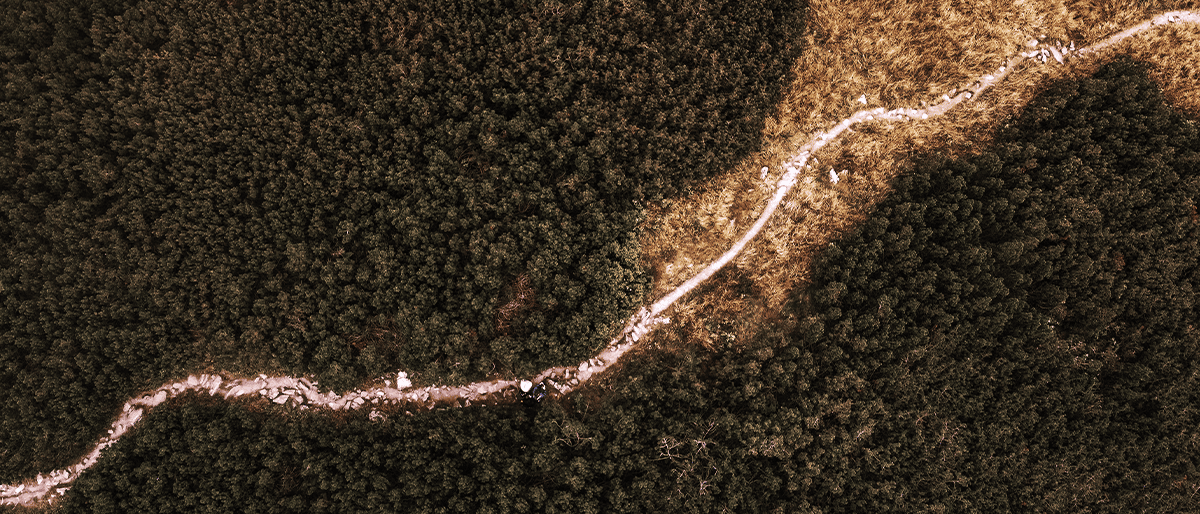
Tim Walker on finding the right leader
Opinion + AnalysisBusiness + Leadership
BY The Ethics Centre 16 NOV 2022
Tim Walker was Former Chief Executive and Artistic Director of the London Philharmonic Orchestra for over twenty years. Balancing its long and distinguished history with a reputation as one of the UK’s most adventurous and forward-looking orchestras, Walker discusses what it takes to grow a profitable business and find the right leader.
Tim Walker was nine when he started learning how to play the piano, and it was only upon attending his very first orchestra, that he realised how much more fun it was to play with other people. So that night, when he arrived home Tim promptly begged his parents to let him start learning the violin too. As a child, Tim was part of the youth orchestra at school, but after a while found it wasn’t really for him… but it was the notion of managing an orchestra, a job which still had that sense of creativity and community which had stolen his heart.
Finding the right leader
“Yes the conductor holds the musicians together but he or she is also using his or her knowledge and intellect to take the written note of the composer and turn it into something that communicates with us in the audience in a very visceral sense, I would say, because it’s not only something that should hit the heart, I think it also needs to hit the head as well.”
While the musicians in the London Philharmonic Orchestra are some of the most talented in the world, it’s the addition of the right conductor that really helps the players shine. The conductor’s role is to unify all the players to one single interpretation of the music, and while the experience of being in a symphony is entirely collaborative, someone needs to ensure everything is flowing seamlessly. But finding the right person for the job hasn’t always been easy. Traditionally in the 19th and 20th centuries, it wasn’t uncommon for a conductor to lead with an iron fist, however as times have changed, so too have conductor styles.
Growing a profitable business
“Interestingly, the London Philharmonic is one of the few orchestras in the world that actually made money from international touring.”
Before Tim joined the London Philharmonic, the company was solely focused on pursuing profit – the board justified each decision by demonstrating how it would contribute to the bottom line. According to Tim, many people make the mistake of thinking just because the individual elements of an enterprise can pay for themselves, then the sum total will be a sustainable enterprise. However, Tim says there are some avenues that need to be pursued not because they generate profit, but rather because doing those things positions the orchestra for the future. As a result, under Tim’s guidance the London Philharmonic recorded all the national anthems for the London Olympics and played at the Queen’s jubilee, not because they were profitable – but because they intrinsically felt like the right thing to do.
Do people still care about orchestras?
“I think, the people do take for granted a lot of the music in their lives as being sort of like wallpaper. I remember when I was talking to somebody who may not know the London Philharmonic, but as soon as I say we recorded all the soundtracks for The Lord of the Rings, suddenly they understand… But they don’t really.”
Over Tim’s twenty year tenure as Artistic Director and Chief Executive of the London Philharmonic, he reveals the hardest part of the job was just keeping everything going. The dilemma is though some would argue that enjoying art is a necessity, music is not the equivalent of food and basic services, so the purchasing of a concert ticket is something that in times of financial stress slows or stops altogether. “You can’t let the institution die on your watch… you’re responsible for 150 full time and 75 part time employees all dependent on ensuring that they can pay their mortgages and put bread on the table.”
Tim highlights that these last few years with COVID-19 have been particularly challenging as audiences are not flocking back as they had hoped.
Tim believes the way to forge a path out of the pandemic is to remind audiences that real people are making this music. The need for live music will never go away, but when you have 200 people whose livelihoods rely on ticket sales, then large orchestras won’t be around for a long time unless we start buying tickets.
“When you care for something, you’ve also got to care for how it’s maintained. So there needs to be a cost to care. And the care for orchestras is in people making the effort to actually go to concerts and appreciate what they have.”
AUDIO: Listen to the full podcast discussion above
Timothy Walker CBE AM Hon RCM was Chief Executive and Artistic Director of the London Philharmonic Orchestra. He was formerly the founder and Chief Executive of World Orchestras and prior General Manager of the Australian Chamber Orchestra. Mr Walker was on the Board of the International Society for the Performing Arts and was Chair of the Association of British Orchestras.
He was an inaugural member of the Australian International Cultural Council, and has served as a director of the London Philharmonic Orchestra, the Henry Wood Hall Trust and the Rachmaninoff Foundation.
Mr Walker has an honours degree in Arts, a Diploma of Music and a Diploma of Education from the University of Tasmania and a Diploma of Financial Management from the University of New England. He has been a consultant to the Australia Council, Create NSW, Creative Victoria, The Australian Ballet, the Australian Festival of Chamber Music, the Tasmanian Symphony Orchestra, the Sydney Conservatorium of Music and the Orcquestra Sinfonica do Estado de Sao Paulo.
Find out more about other conversations in the Leading with Purpose podcast. Delve into more articles and podcasts like this by signing up to our Professional Ethics Quarterly newsletter.
Ethics in your inbox.
Get the latest inspiration, intelligence, events & more.
By signing up you agree to our privacy policy
You might be interested in…
Opinion + Analysis
Business + Leadership, Relationships
Game, set and match: 5 principles for leading and living the game of life
Explainer
Business + Leadership
Ethics Explainer: Consent
Opinion + Analysis
Business + Leadership
Is it fair to expect Australian banks to reimburse us if we’ve been scammed?
Opinion + Analysis
Business + Leadership, Relationships
It’s time to take citizenship seriously again
BY The Ethics Centre
The Ethics Centre is a not-for-profit organisation developing innovative programs, services and experiences, designed to bring ethics to the centre of professional and personal life.
Roshni Hegerman on creativity and constructing an empowered culture

Roshni Hegerman on creativity and constructing an empowered culture
Opinion + AnalysisBusiness + Leadership
BY The Ethics Centre 16 NOV 2022
Roshni Hegerman is one of the most awarded strategic thinkers globally. Currently JPAC Market Maker and Experience Director across sustainability and people with Oracle, she discusses creativity, psychological safety and how to construct an empowered culture.
When Roshni was a little girl growing up in India, she didn’t have dreams of being an executive or a director, she had much more humble aspirations to be a social worker. Though her parents didn’t feel it was a career path that could support a family long term, Roshni had her heart set on working with people at a local level.
With this in mind, she studied sociology and psychology in college, but then drifted into journalism and communications, which is where her marketing and communications career really begun. Although, she never did realise the goal of becoming a social worker, the ethos of social work and community has informed all of her decision making she says, “I get realy excited by the power of ideas and how they can connect with people and actually drive either a shift in perception or a shift in behaviour or give people a different lens to kind of view the world through that they wouldn’t have typically viewed it through.”
Be a radiator, not a drain
“I think that the traditional sense of creativity probably isn’t as valued as it could be. I think the use of creativity is to innovate and to do things differently and to think about how you’re going to connect in and change things in a positive way. So from that perspective, I actually think that creative thinking is the only thing that cannot be automated.”
Roshni believes that in the modern workplace, as we shift full speed into the world of automation, creativity and the capacity to think outside the box will actually be the most important skill set for young leaders and changemakers of the future.
One of the things that has stuck with her throughout her professional career is to “be a radiator not a drain”. Rather than be a drain she says, sucking the energy out of the room by sticking to the rules and following traditions, we should be radiators – empowering others, generating ideas, and inspiring new ways of thinking. “I think people are starting to realise that if you’re going to continue to do the same thing and get the same result, and the end and it’s not a positive one, then something has to change.”
Roshni often reflects on her professional practice asking a few key questions:
- How can I use my influence to be more of a radiator?
- Is there a more interesting or different direction we could consider?
- What’s stopping us from being more passionate about a project?
- How can I generate enthusiasm in my team?
- Embrace new and innovative ideas
She suggests that if you can be more of a radiator in your workplace, then people will naturally gravitate towards you, there will be less resistance to your ideas.
People who feel safe have the best ideas
“It’s when you feel like you have to meet a quota and you have to get something done that you tend to revert back to what you know and you don’t feel safe to kind of go out of that box and try something different. It’s when you have an organisation where employees feel safe to kind of give something a go and they’re empowered to be able to do that.”
In order to truly embrace one’s inner radiator, one must feel safe and confident within their team to share their ideas without fear of criticism.
Throughout her career, Roshni has explored the idea of psychological safety in the workplace environment. She suggests as leaders it’s important to create a space of safety in the workplace that allows people to feel more open to being more vulnerable whilst confident enough to have their ideas challenged.
She says, “I think it is very important to create an environment where where you don’t feel threatened by the ideas that you have. There needs to be an environment that allows you to feel at ease with sharing kind of a strong point of view, regardless of which direction you come from.”
Roshi works hard to identity the natural unconscious biases that stop team members from being curious because they believe they already know the answer. She emphasises that it’s important to consciously ask pointed questions and embed curiosity and innovation into every element of organisational structure and process in order to force people to look at things from a different perspective.
“I think it helps create a culture of discovery, empathy, curiosity, and opens up different possibilities of pathways that could be considered. So that’s one of the things I feel really excited by is going, ‘how do we consciously think about these things and what can we do to ask the right questions so that we are having the right conversations so that we can engage people’s curious mind to think about things differently?”
Contributing to a better world
“You need to be willing to have a lived experience. You can’t just say that you care about indigenous people or homeless people. You need to see it from their perspective and understand what they’re going through in order to be able to help in the way that they need you to help them, not how you want to help them.”
Despite diverting from the pathway to a career in social work all those years ago, Roshni maintains that the notion of caring for others and celebrating a sense of community has never left her. It’s important to consider the lived experience of different people, rather than assume what people need, you should strive to constantly be out in different communities and speaking to people directly in order to enrich your own perspective.
Roshni suggests it all comes down to realising that at the end of the day, we are all humans who want to be treated with dignity and respect. She believes in giving those who are underrepresented a voice, and a platform so they can get the help that they need. Her advice for the business leaders of the future is: It’s important to understand that it’s not all about you, that the world is about others, that you occupy it with. So how can you actually help make things better, not just for yourself, but for the people around you?
AUDIO: Listen to the full podcast discussion above
Roshni Hegerman is a force of nature with an unstoppable passion to move businesses and people, creating positive impact and change. Roshni currently is JAPAC Market Maker, Experience Director, with Oracle across Sustainability and People; and is founder of her own strategic creative consultancy, PinchofMasla. Roshni is global citizen unafraid of traversing new and unchartered terrain, in fact she relishes in it – working and thriving in United States, China, India and now Australia – with three beautiful children in tow. Roshni helped launch the iPhone in China, start-up BBH and BBDO in India; grow Coca-Cola’s footprint across Asia.
Roshni is a champion for diversity and inclusion and one of the most awarded strategic creative thinkers globally. She has started her own Women in Leadership networking group – “Ladies that Lunch,” to bring like-minded female leaders together to make meaningful change and collaborates closely with Igniting Change and Campfire X, tiny but meaningful organisations that spark big positive change. Roshni launched “Creating Meaningful Change” while at McCann Australia, a 365-day initiative, that puts conscious inclusion at the centre of the agency’s strategic and creative operating system.
Roshni believes that magic is found in the intersection of humanity, creativity and technology.
Find out more about other conversations in the Leading with Purpose podcast. Delve into more articles and podcasts like this by signing up to our Professional Ethics Quarterly newsletter.
Ethics in your inbox.
Get the latest inspiration, intelligence, events & more.
By signing up you agree to our privacy policy
You might be interested in…
Opinion + Analysis
Business + Leadership, Relationships
Employee activism is forcing business to adapt quickly
Opinion + Analysis
Business + Leadership, Relationships
Facing tough decisions around redundancies? Here are some things to consider
Opinion + Analysis
Business + Leadership
The value of principle over prescription
Opinion + Analysis
Business + Leadership
The Ethics Alliance: Why now?
BY The Ethics Centre
The Ethics Centre is a not-for-profit organisation developing innovative programs, services and experiences, designed to bring ethics to the centre of professional and personal life.
Sylvie Barbier and Rufus Pollock on failure and fostering a wiser culture

Sylvie Barbier and Rufus Pollock on failure and fostering a wiser culture
Opinion + AnalysisBusiness + Leadership
BY The Ethics Centre 16 NOV 2022
Sylvie Barbier and Rufus Pollock are the partners in business and life who strive to build wiser future through culture, space and community. With a unique and innovative approach to business, the pair uncover the realities of being a leader, the importance of failure and fostering a wiser culture.
As a performer, Sylvie Barbier has a real passion for community. Her work is a tenacious exploration of the idea of “art as a conversation” and it’s these thematics of life, discussion, and unity which has equipped her to establish the Life Itself initiative. Together with her partner Rufus, a creative technologist and economist, the two have built a collective based in the half way space between Silicon Valley and the Plum Village in the South of France, which is engaged with creating a weller and wiser world.
On defining leadership
“There is an incredible thirst for leadership, not necessarily leaders – but for leadership.”
The world is in a moment of transition. There is an impending climate crisis, widening inequality as well as a huge amount of disunity and civil unrest, and Rufus believes that we must harness this specific moment in time to interrupt our current archaic notions of what constitutes a leader to craft something new and innovative. He suggests, “we are at a cultural moment where leadership is badly needed, but hugely undermined in part because of these past traumas that we are healing from.”
The reality of being leaders
“There’s always going to be a problem, you’re either not doing enough, or you’re doing too much and being oppressive.”
Having led multiple different initiatives through tech, art and community, both Sylvie and Rufus have learnt a lot about the process of leading. Now that they jointly lead Life Itself, they are encountering a whole new suite of hurdles and challenges as part of running the collaborative residency programs. The programs bring a collection of thinkers, creators, technologists and spiritualists together over an extended period to time to debate and engage with the challenges of the modern world.
Rufus says the hardest part is finding the balance as a leader, “invariably after three months there is some sort of crisis – someone is imposing too many rules, someone has to cook too often – and ultimately you are trying to facilitate the group to engage in a transformation and face these issues, what people must learn is that we need to engage with failure. We have an allergy to failure, but it’s these breakdowns which are the most valuable.”
When leaders fail
Capitalist culture dictates that when a company has some major failing – it is generally the CEO who must hand in their resignation. That the decks must be cleared for fresh blood and new ideas to flush out the old. However Rufus fears we may have gone too far, suggesting that we’ve descended into conducting “ritualised executions” when we decide someone needs to take the blame – just because the leader has left their position doesn’t mean the company will be any better off. Rufus suggests that it’s important to identify the source of the problem, and to think about the duties and responsibilities of leaders more holistically.
In reflecting on their own careers both Rufus and Sylvie acknowledge that they have made some mistakes, and at times mismanaged things. As he continues to learn about leadership, Rufus has let go of trying to achieve everything himself, saying, “leadership is about creating a space in which other people can flourish. I think more and more for myself, based on a huge number of errors, it is the act of creating space versus doing it myself which is central.”
Sylvie agrees, adding her biggest obstacle was she had a tendency to pursue ideals without being grounded in the reality of the world and the reality of who she is. She explores her issues with reconciling these two ideas, “sometimes I felt that the vision I had almost became a burden because it was my responsibility to make it happen. And if it doesn’t happen it’s my fault.”
In the past she was characterised by the ruthless pursuit of intangible goals, but found she was ultimately dissatisfied with this way of leading because when she achieved these goals she would immediately need to move on to something else and it felt particularly dissatisfying.
She concludes, “the world is already perfect the way it is, it doesn’t need to be any different than the way it is right now. And in a moment of radical acceptance, I realised I was already in paradise.”
AUDIO: Listen to the full podcast discussion above
Sylvie ‘Shiwei’ Barbier is a French-Taiwanese performance artist, entrepreneur and educator. Her work synthesizes Eastern and Western philosophies and aesthetics. She co-founded Life Itself to build a wiser future through culture, space and community. Her performance art pieces are contemporary rituals, where the audience is invited to take an active and interactive role. She uses language such as Koans as a bridge for the mind into the spiritual realm, by pushing us beyond the bounds of the intellect into a space of greater wholeness and connection.
Rufus Pollock is a technologist, entrepreneur, writer and long-term zen practitioner. He is the founder of Open Knowledge, an award-winning international digital non-profit. Formerly a Shuttleworth Fellow, Ashoka Fellow and a Mead Fellow in Economics at Cambridge University. His book the Open Revolution sets out a vision for a open, free and free information economy and has been translated into multiple languages. As a co-founder of Life Itself he brings curiosity and rigour to ongoing inquiry into how we can create a radically wiser, weller world for all.
Find out more about other conversations in the Leading with Purpose podcast. Delve into more articles and podcasts like this by signing up to our Professional Ethics Quarterly newsletter.
Ethics in your inbox.
Get the latest inspiration, intelligence, events & more.
By signing up you agree to our privacy policy
You might be interested in…
Opinion + Analysis
Business + Leadership
The Ethics Alliance: Why now?
Opinion + Analysis
Business + Leadership, Science + Technology
Is technology destroying your workplace culture?
Opinion + Analysis
Business + Leadership, Politics + Human Rights
Can philosophy help us when it comes to defining tax fairness?
Opinion + Analysis
Business + Leadership, Relationships
There’s no good reason to keep women off the front lines
BY The Ethics Centre
The Ethics Centre is a not-for-profit organisation developing innovative programs, services and experiences, designed to bring ethics to the centre of professional and personal life.
The sponsorship dilemma: How to decide if the money is worth it

The sponsorship dilemma: How to decide if the money is worth it
Opinion + AnalysisBusiness + Leadership
BY The Ethics Centre 28 OCT 2022
More sporting and arts bodies are thinking hard about whom they’re willing to accept funding or sponsorship deals from. But how are they to weigh the competing interests of their organisations, players and artists, and the general public?
When First Nations netballer Donnell Wallam spoke out to seek an exemption from wearing the logo of major sponsor, Hancock Prospecting, she sparked a national conversation around the role of sponsorship in sport, and what voice players ought to have in choosing which sponsors they accept and which logos they wear on their jerseys.
In the case of Wallam, Netball Australia had just signed at $15 million sponsorship deal with Hancock Prospecting, run by Gina Reinhart, the daughter of the founder, Lang Hancock. This was seen by Netball Australia as a much-needed injection of funding to compensate for the multi-million dollar debt the sport’s governing body had accrued during years of COVID-19 lockdowns and travel restrictions.
But Wallam saw something else. Front of mind for her were comments made by Lang Hancock in a 1984 documentary where he advocated that any Indigenous peoples who had not been assimilated ought to be rounded up and sterilised.
After a weeks of debate and negotiation, Hancock Prospecting withdrew from the sponsorship deal, offering short-term funding until the sporting body could find a new sponsor. In a parting shot, the company released a statement saying “it is unnecessary for sports organisations to be used as the vehicle for social or political causes” and that “there are more targeted and genuine ways to progress social or political causes without virtue signalling or for self-publicity”.
However, there is good reason to believe that Wallam and Netball Australia’s actions were more than a ‘virtue signalling’ exercise, but rather part of an increasing trend of sporting bodies and other organisations thinking carefully about whom they accept funding from and which industries they are willing to be associated with.
In recent times, a group of high-profile Freemantle Dockers players and supporters have called for the club to drop oil and gas company Woodside Energy over concerns about climate change. Australian test cricket captain, Pat Cummins, has also declined to appear in any promotional material for Cricket Australia sponsor Alinta Energy, a move backed by former Wallabies captain, and ACT senator, David Pockock.
Arts organisations have been wrestling with similar questions for some years, prompted by incidents such as the Sydney Biennale in 2014 severing its relationship with Transfield, which operated immigration detention centres, after an artist boycott, and the Sydney Festival in 2022 deciding to suspend all funding agreements with foreign governments after an artist boycott due to a sponsorship agreement with the Israeli embassy.
So how should businesses and other organisations, including sporting and arts bodies, decide whom to accept money from? How should they weigh the interests of players, artists, supporters and the wider public with their financial needs and their organisational values? How do they avoid making rash decisions that themselves trigger a backlash?
How to decide
These are difficult questions to answer, which is why The Ethics Centre has developed a specialised decision-making approach, Decision Lab, to help businesses and other organisations navigate difficult ethical terrain and make better decisions.
The Decision Lab process is designed to bring implicit thinking and buried assumptions to the surface so they can be discussed and debated in the open, providing tools to evaluate decisions before they are committed to so that key considerations are not overlooked.
The foundation of the Decision Lab is gaining a deeper understanding of the organisation’s foundational purpose for being, its values and the principles that guide it. These ought to be the starting point of any big decision, but published mission statements and codes of ethics are often overwhelmed in practice by the organisation’s Shadow Values, which are woven into the unspoken culture. The Decision Lab seeks to bring these values to the surface so they can scrutinised, revised and applied as needed.
The Decision Lab also employs a decision-making model that follows a step-by-step process that covers all the elements necessary to make a comprehensive and defendable decision. This includes factoring in what is known, unknown and assumed, such as how the funding might positively or negatively impact the community, or how it might help to promote a cause that the organisation doesn’t believe in.
It also considers the impacts of a decision on all stakeholders, including the wider community and future generations, and not just those who are closely connected to the decision.
The process also teases out the specific clash of values and principles around a particular decision, which is useful because many dilemmas follow a similar form. So if an organisation has an existing solution to one problem, it might find it already has the necessary reasoning and jusification to respond to another situation that follows the same pattern.
Finally, the Decision Lab applies a ‘no regrets’ test to ensure that nothing has been overlooked. This helps avoid situations where a decision is made yet it runs into problems that could have been forseen if the organisation had applied a more rigorous decision making process, such as a counter-backlash by other segments of their community.
The Decision Lab supports the executive team to align their decisions with the organisation’s ethics framework and helps to communicate with all the key stakeholders the rationale for decisions. By applying a more rigorous decision-making process, an organisation is better able to balance competing interests, resulting in more ethical decisions aligned to its purpose, values and principles that will hold up in the face of scrutiny.
The Ethics Centre is a thought leader in assessing organisational cultural health and building leadership capability to make good ethical decisions. To find our more about Decision Lab, or arrange a confidential conversation contact the team at consulting@ethics.org.au. Visit our consulting page to learn more.
Image by Nigel Owen / Action Plus Sports Images / Alamy
Ethics in your inbox.
Get the latest inspiration, intelligence, events & more.
By signing up you agree to our privacy policy
You might be interested in…
Opinion + Analysis
Business + Leadership
Is there such a thing as ethical investing?
Opinion + Analysis
Business + Leadership
David Gonski on corporate responsibility
Opinion + Analysis
Business + Leadership
Market logic can’t survive a pandemic
Opinion + Analysis
Business + Leadership, Science + Technology
